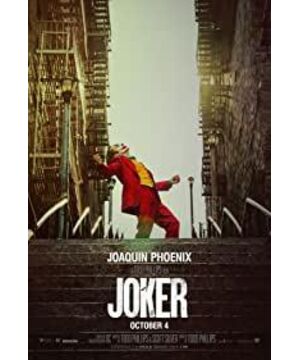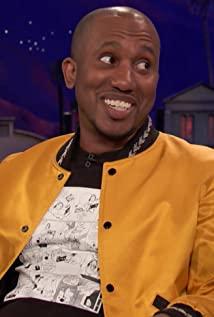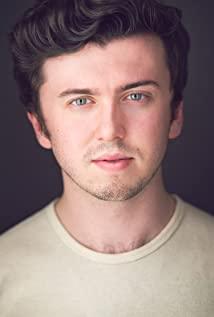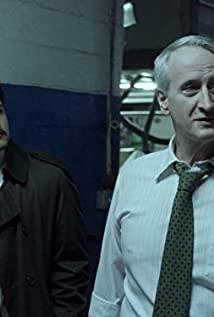I intended to give it 3.5, mainly because the film is understandable in terms of lens quality and actors’ acting skills. It can basically score a full mark, but the depth of the plot and theme can only be said to be very general. In my personal preference, the depth of the plot occupies the absolute first weight, so the overall situation is also very small. I think my score is still objective, and I am afraid it will be much lower if I want to give it subjectively.
why? It is precisely because of this combination: very good expression skills (that is, provocative is relatively strong) + the theme of wearing colored glasses. In other words, it is inciting people's hostility, rather than using such a good way of expression to analyze the truth.
The reason why this film is generally well received is inseparable from its excellent level of expression. As I mentioned earlier, it is a five-star film from this point of view. The expression method is not like the theme, it is something that is accepted by the senses, not the brain. If the art is expressed well, as long as it is not an anti-social personality, it can be obtained. Incitement actually comes from here.
So where is the subject matter that I am talking about?
Let me give an example. For example, there is a writer A who wants to criticize the "social mechanism is not good". He wrote a book for this, in which the crimes of this society and the injustices suffered by people are displayed in the book. Writer B wants to do the same thing, but he chooses to state in his book the advantages and disadvantages of this society that he observes, which are intertwined as in reality, and it is precisely because of the imperfection of the social system. The bad is mixed, and even decayed to the point where the harm outweighs the good, causing all kinds of people, no matter whether they are good or bad or whatever, to fall into trouble without choice .
So which writer do you think has more profoundly explained the issue of "social mechanism problems"? I definitely think that Writer B is better. Because of the single emphasis on social evils, Writer A weakens the viewpoint to a certain extent, because everyone knows that there is no absolute evil or absolute good in the world. When something is portrayed as absolutely evil, it can only mean that you are wearing colored glasses, and then your point of view is automatically weakened. This is the strategy used in this film. When I was in the cinema, I was particularly worried about the long single description of the entire first half. It is not so simple and rude to express the society’s incomprehension of clowns.
In the first half of the film, Arthur is a gasp. The high rate of social unemployment has caused the people to be irritable and the crime rate has soared. The male protagonist is bullied by a group of children, neglected by social workers, assaulted by his mother on the bus, etc. These are all positive talks about how unfair society has caused him to suffer, although this is very flimsy. I can accept the duality. The bad guys in the comics must be bad. What I can't accept is the attitude of the rich inside. Wayne has become a representative of the bourgeoisie who does not know the suffering of the people. As a representative of the middle-class entertaining (stupid) public, Robert De Niro's words are too out of play. In other words, in real life you are basically impossible to watch. When the rich and middle class say such things, it shows such an outrageous level of "why not eat meat". For example, a top entrepreneur would publicly endorse his personality without knowing those three people? What I said is very contradictory: "I don't know them, but I believe they are good people..." Uh. . . A normal person will only say that I am not clear, but as an employee of this company, I will support and cooperate with the investigation of the truth, right? There are ways to express class consolidation. Using this trick is too low-level. It feels like the pig teammates are giving points to the opponent. Besides, I saw that the little bat was dumb. In Batman, Alfred, who has a high emotional intelligence, is condescending. Anyway, the Batman’s good guys are all stupid + unreasonable. Isn’t this just a kind of colored glasses?
If you really want to talk about these in-depth issues, you should actually present the crux of the problem. Don’t write both the rich and the middle class as bad people. After all, do you personally think that Wayne and De Niro are obviously not good). To be honest, if the world could really distinguish between the absolute good and the bad, the earth would have been peaceful long ago. . . For example, "Crash" about racial discrimination, what's so good about it? Did he talk about how a black person who was discriminated against was oppressed and finally killed all those who discriminated against him? No, it said that some people who seemed to discriminate against black people saved black people, and those who seemed to oppose discrimination really discriminated against black people because of fear. In reality, good people and bad people are hanging on a thread in this way. We all understand the principle. We know that we can’t do evil. But the question is, do you know when you are doing evil?
Turning back to this film to discuss matters, its themes are actually quite scattered. At De Niro’s level, there is a clear critical direction for material society to entertain the masses in a low-level way. The Wayne interview has a critical direction for establishing a binary opposition between the rich and the poor. People care about communicating with him, and he is not on the same channel with normal people, and a marginal personality is abandoned by the society. Then the inner connection of these three themes has not been made! Moreover, logically speaking, the setting of marginal personality weakens the theme of "social injustice"-if society is really very unfair, then even normal people will encounter injustice. How perfect is a person like marginal personality? Can utopia be well placed? ! Generally, even high-welfare countries like Northern Europe cannot take care of all marginal personalities. Does this mean that the social mechanism is poor? Isn't it weakening the point of view?
To put it bluntly, stripping off the epidermis of literature and art, this is actually a story of a marginal personality mentally ill who used multiple pressures to violently kill all the people he disliked and the people who bullied him. There are grievances and revenges... So does it sound like looking at the world purely from the perspective of this mentally ill person? Everyone is sorry for him and owes him. Everyone is wrong. He is right. When he kills, he resists and breaks free. He rises up and breaks the shackles... Uh, is it too beautifying the murderous motives of this mentally ill murderer? ?
I can see that the same "problem between the rich and the poor" and the "entertainment to death problem" on these background boards are all for connecting with the Heath Ledger version of the clown's unusually complex, three-dimensional, high-IQ image, but this story is about these two. The problem does not matter. When you set up a main line, let the clown have a personal motivation to kill these people (these people make fun of him, ignore him, bully him), then he does not have a higher level of motivation (the choice of subjective thinking, the order Philosophical thinking), he has objectively fallen to the level of "revenge", thus largely losing his spiritual charm.
Including the fact that he became a spiritual leader is also very low-level. From his perspective, it is the excitement and satisfaction that he has finally become the focus of the spotlight, and the tears he shed also means "Lao Tzu has finally become". From the point of view of the mob, it is not a revolution that has been thought about, such as the V-Vendetta team, but "I finally have an excuse to beat, smash, and rob." This whole is the climax of a low-level farce, so I can't get interested.
To be interesting, the final ending is the most interesting. I don't know why so many people think this is an open ending, where is it open? The narrative is that the clown killed De Niro. He went out and was hit by a car and was picked up by the stars Gongyue. After that, he did not run. When the police came, he must have caught him and threw it into the Aka lunatic asylum. He was obviously killed. The last doctor ran out, but he still couldn't escape. In the end, the exquisite picture perfectly shows the "real birth of the clown", showing chaotic and irregular chasing after me in a joking black humor way.
Actually, when I watched Nolan's version of Joker, I knew it would be very thankless to write him a prequel. Because he is already a very abstract incarnation of evil and disorder in the Dark Knight, the beauty of him is that you don't know how he is as a person . This kind of white space is very advanced, and it is irrational to fill it. Of course, if you step back ten thousand steps, don’t think about the dark knight version of the clown. It will be much better to tell this story from the perspective of a marginalized personality. It’s a pity that the screenwriter is deeply influenced by the dark version, and you have to force the audience to think of it. The previous version of the clown does not have that kind of skill.
From the perspective of the Dark Knight, to achieve such a high degree of wisdom and logical clarity, can you think about what a mental patient who was raised by a mentally ill mother can do? It's not reasonable. Why did we become interested in clowns? To put it bluntly, isn't it different from those coquettish bitch road villains outside? He and Batman have two sides, and the two extremes cherish each other. He even hopes that Batman will kill himself and take the initiative to save Batman. The logic of these anti-routine operations is actually very clear, that is, what he wants is to prove that his philosophy is correct. : Pursue the extreme of disorder instead of the binary opposition between good and evil. So reasonable backward, he is also likely to come from a wealthy background and well-educated. The portrayals like this one are basically broken with the Dark Knight, but the screenwriter is still on the verge of death.
All in all, the screenwriter's shortcomings are a pity for other high-level productions in the team.
. . . . . A dividing line for unified reply. . . . .
I think that it means that this movie has nothing to do with Batman. It just talks about how a mentally ill person turned bad. The audience can take a closer look at my original text. I just think this movie would be better if it really only talked about this. , But I and many viewers have felt the theme and the Nolan version of the association: political appeals and criticism of entertainment to death, and this mental patient storyline has only superficial cause and effect, but no connotative inevitability. Of course, you can also say that the comic clown is such an image, and it involves political and social themes no matter what. Indeed, when you are deciding to be a clown of "the transformation of the mentally ill in society" version, did you consider the inherent irrationality? That is to say, a mental illness like Arthur who was abused at a young age and has a low level of education (let his IQ explode) can become a criminal king known for his brain power? Do you expect goose eggs to hatch phoenixes?
In both cases, audiences who say "this is fantasy" are not used to remind me that this is fantasy, but I didn't want to understand it. I understand the details you found, including the comments on the photos and so on. What I want to say is that the story of the main creator is very clear and unambiguous as a whole. It is a story of a mental patient's outbreak. In a sense, I turn the whole story I told into "Nolan version of the human-designed clown is deceiving." The argument is simply too funny, oh, I spent two hours to make such a beautiful and very scratchy film, and put in such skills and acting for a complete stranger who stood up very obscurely in five seconds?
Those viewers who say Wayne is really the clown father, first think about the effect of this setting from the results? Effect 1. Dog blood: The woman you have been in love with for a long time in the Korean drama is your sister. Effect 2, aggravate the black and white opposition: So the Wayne family are bad guys, so should the clown hit the bat at the end? After the clown who dares to be the villain in Batman becomes the protagonist, the original positive character must become the villain, right? . . . This whole effect is only simpler in the dramatic structure, flattening the opposition of black and white, not only does it not add depth, but it is an operation that reduces intelligence.
So why are there such details? First of all, those details have one characteristic: ambiguity, not absolute. Take a look at how the "Breaking Bad" people do the details? They are also obscure, but every outstanding detail is not only repeatedly emphasized, but also decisive, which means that without this detail, the plot can't go on. What time can the clock and the blank face of the doctor prove absolutely? What can the message after the photo that the clown found absolutely prove? To be honest, if Penny had delusions and made very unbearable things because of Wayne's teasing, then this photo can also explain, and the reaction of Wayne and Alfred afterwards can also be explained. It's not absolute, but it was thrown out just to trigger this kind of discussion. If there are more topics, he will make more money. It's that simple.
So my point is this, I won’t reply.
View more about Joker reviews











